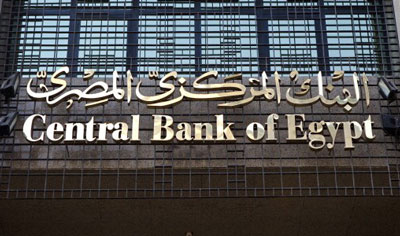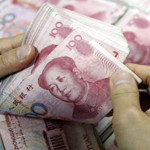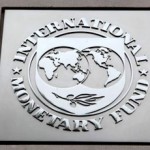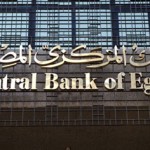Egypt’s new central bank chief faces bitter pill of currency devaluation or IMF aid

Spare a kind thought for the travails that Tarek Amer, the newly appointed governor of Egypt’s central bank, will be facing when he formally takes up his post on November 27.
He could have had no illusions how disastrous the state of the Egyptian pound was when he took the job last month, but he could not have anticipated the twin crises that threaten to wipe out a significant share of the meagre foreign exchange that Egypt still earns.
The central bank will be forced to move quickly to lower the price of its overvalued currency, assuming it doesn’t want to continue lunging from one currency crisis to another, and seeks to put an end to the current economic stagnation.
Because traders lack access to foreign currency, imports and exports – a key engine of economic growth – have plummeted since Hisham Ramez, the central bank’s outgoing governor, decided he would quash the black market rather than risk too steep a currency devaluation. Factories have slowed production for lack of spare parts.
Foreign currency reserves are at their bare minimum, and there are few sources of funds to top them up again.
Even before the downing of a Russian Airbus aircraft in central Sinai on October 31, tourism had not recovered to anywhere near its pre-2011 levels. Abroad, economic growth in several of Egypt’s main export markets, including Europe, America and China, has been slowing.
Egypt will not get quick relief from the huge natural gas discoveries off Egypt’s northern coast, with significant new gas only due to begin flowing in another two years.
Arabian Gulf governments had been sending billions of dollars to Egypt since the Muslim Brotherhood was removed from power in July 2013, but the collapse of oil prices since then has altered their finances. Mr Amer will have to solve this mess with few of the assets that the central bank had when he helped to overcome a very similar crisis in 2003 and 2004.
In those days, the global economy was strong, Egypt was politically stable, tourism was booming, the price of oil was high and natural gas from newly discovered deposits was just beginning to flow in. Gulf countries were flush with cash and they rushed to invest in Egypt with the liberalisation of the government of the prime minister Ahmed Nazif in 2004.
If that weren’t enough, two new crises since Mr Amer’s appointment risk creating a perfect storm by slashing two pillars of Egypt’s foreign exchange earnings.
The bombing of the Russian aircraft from Sharm El Sheikh on October 31 and subsequent suspension of airline flights look likely to destroy much of the winter season along Egypt’s Red Sea and Sinai resorts, the one area where tourism was still going strong.
The second crisis was the arrest of a prominent businessman, Salah Diab, sending a shiver through the business community and threatening to slow foreign investment, traditionally a pillar of Egypt’s foreign currency inflows.
The government detained Mr Diab, the co-founder of the conglomerate Pico Group, in a dawn raid last week and froze some of his assets over alleged financial irregularities related to a land purchase for a housing development, a case that had stayed largely dormant since it was filed in 2011.
Many people believe that Mr Diab’s troubles have more to do with critical articles in Al Masry Al Youm, an independent newspaper which Mr Diab helped to found, than with his business dealings.
Hani Sarie-Eldin, a top lawyer and the former head of Egypt’s Capital Market Authority, wrote a scathing letter to Sherif Ismail, the prime minister. Mr Sarie-Eldin, who is now working on the Suez Canal corridor project, wrote that Mr Diab’s arrest had shot a “deadly bullet” into the country and that he knew of several international companies that backed out of an investment last week as a result. With few other options, the central bank will almost certainly be forced to devalue the Egyptian pound, and fairly quickly.
This is a step that carries two major risks. One is that of dollarisation, where people, worried of more devaluations in the pipeline, rush to switch their funds out of pounds, dragging the currency even lower.
The second is that because a weaker pound will make imports more expensive, a devaluation will lead to inflation. This is not a good time for price rises for a government whose honeymoon with the public has been waning.
A weaker pound will eventually boost exports and draw foreign investment, but the central bank cannot count on a quick fix.
Instead, it may be forced to swallow a bitter pill and turn to the IMF and the World Bank for help. Whatever it does, it had better invest part of its energy in explaining to a sceptical public why this is all necessary, something it has not been good at in the past.
Source: The National – Egypt’s new central bank chief faces bitter pill of currency devaluation or IMF aid





























